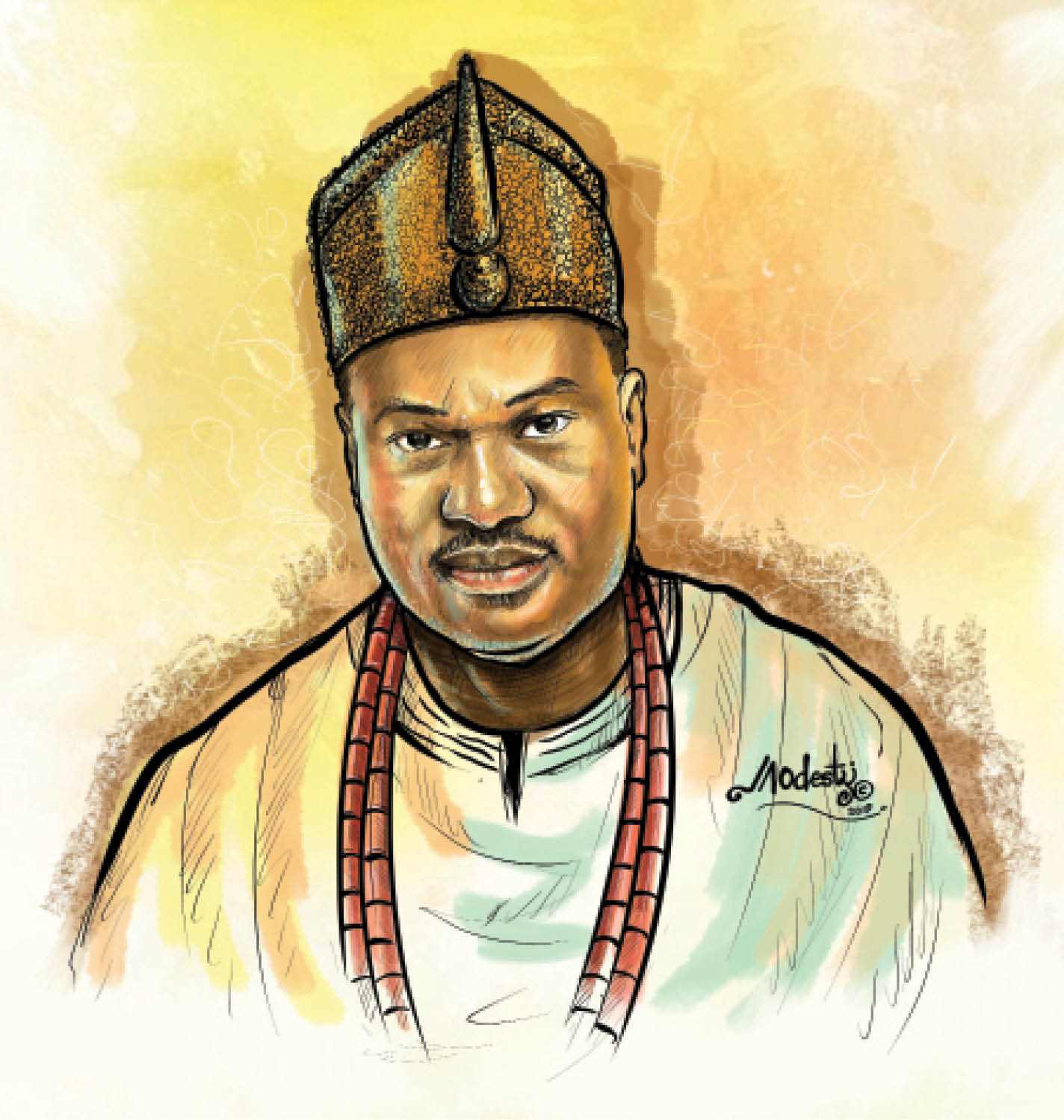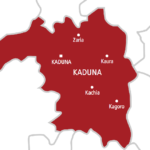We have more Yoruba people in Brazil than even in Nigeria. We have close to 80 million Yoruba people in Brazil,” the Ooni of Ife, His Majesty, Oba Adeyeye Enitan Ogunwusi, recently claimed.
Oba Ogunwusi made the claim in an interview with Daily Trust on Sunday of September 22, 2019, on the sideline of an exhibition of over 60 Ife artifacts held at the Brazilian Consulate in Lagos.
The monarch, who is the spiritual head of the Yoruba people, said Ife Kingdom had remained in touch with Yoruba people in Brazil to preserve its heritage.
He said, “I don’t want them to be a lost tribe; that’s why we have been doing a lot of programmes with them. That’s why we have the Ifa Heritage Mobile Museum set up in Rio de Janeiro in Valongo Wharf. That’s the biggest port through which human beings were moved and transitioned.”
The Yoruba in the Diaspora, including those based in Brazil, believe Ile Ife, in South West Nigeria, is their ancestral homeland. The Yoruba make up a huge diaspora population largely due to the slave trade, and lately, the emigration from Nigeria linked to socio-economic issues.
The New World Encyclopedia states that during the decline of the Oyo Empire, Yorubaland degenerated into series of civil war in which military captives were sold as slaves. Some of the slaves who were exported as a result of the civil wars were sent to Brazil and some other countries outside Nigeria and Africa, hence Yoruba-speaking people can be found in Togo, Benin Republic, Sierra Leone, Liberia and some other African countries.
Verification
Due to the sensitivity of ethnicity in Nigeria, the National Population Commission (NPC) did not collect data analysed based on ethnicity in the last census held in 2006 to avoid the political row the outcome would have created. This posed a challenge in determining the population of Yoruba people in Nigeria. Similarly, the Brazilian government has no official data for the population of the Yoruba living in Brazil.
To get around this challenge, data published by the United States Central Intelligence Agency (CIA) for both Nigeria and Brazil were considered a credible alternative to use. The World Factbook published by the CIA provides regularly updated information on the history, people, population demographics, society, government, economy, energy, geography, communication, transportation, military and transnational issues for 267 world entities. The World Factbook puts the population of Yoruba people in Nigeria at 28.28 million, being 13.9 per cent of Nigeria’s population of 203.5 million as at 2018.
This translates to about three times the number of Yoruba people living in Brazil going by the claim being checked. CIA’s data show that as at 2018, the total population of Brazil was 208.9 million, out of which, by ethnicity, whites made up 47.7 per cent, mulatto (mixed white and black) constituted 43.1 per cent, blacks accounted for 7.6 per cent, Asians for 1.1 per cent while indigenous people for 0.4 per cent.
The World Factbook, which details the demographics of the global population, estimates that the Yoruba constitute about 105 million people in total, majority of them from Nigeria, where the Yoruba make up 21 per cent of the country’s population.
However, there is no mention of Yoruba people in the breakdown of the ethnicities in Brazil, and at best, the Yoruba were among the sub-ethnic groups captured under mulatto and black.
Further checks from the New World Encyclopedia, which was last updated on September 10, 2019, put the global population of Yoruba at 19.33 million, primarily from Nigeria, Benin and Togo.
Data sourced from the University of Florida’s resource on African Studies indicate that there are 25 million Yoruba globally from Nigeria, Benin, Togo and communities in Brazil, Sierra Leone, northern Ghana and Cuba.
Despite different numbers of the population of the Yoruba globally, available data show the numbers are far less than the population of 80 million in the claim being investigated.
Supposing all Yoruba people all over the world live in Brazil, numbers show they are far less than the population of 80 million.
More insights
A Brazilian lawyer, Ygor Coelho, wrote that “Yoruba is no longer spoken in Brazil as it is long extinct in the country,” but that it had influenced Brazilian Portuguese (less than Quimbundo and Umbundo – Bantu languages from Angola), and especially the musical lexicon of some regions (particularly Bahia, where Nigeria-Brazil slave trafficking was most prevalent) and the religion/spirituality-related vocabulary of the Afro-Brazilian religion, Candomble (words like axe, ogum, afoxe, xango, Iemanja, olodum, etc.)
Coelho further said Yoruba or at least a Yoruba-based dialect was also used as a kind of “fossilised” liturgical language in traditional folksongs related to Candomble religious practices as “People don’t speak or even understand it, but they memorise and sing the lyrics by heart.”
An expert who studied Cultural Anthropology and African Studies at the University of North Carolina at Charlotte, Oloye Aikulola Gbanwoniyi, debunked popular views that Yoruba is spoken in Brazil.
Gbanwoniyi said, “There are no Yoruba language speakers of any level of fluency in Brazil except by recent Yoruba immigrants from Nigeria and Benin Republic.”
The expert said Yoruba language as a vernacular among enslaved Yoruba people in Brazil during the era of the Trans-Atlantic Slave Trade and their descendants died early in the last century, leaving behind a lexicon/vocabulary of Yoruba words and words of Yoruba origin used in rituals of the Candomble religion. A Brazilian based in Chapeco, Brazil, Gustavo Pedroso, said majority of Brazilians did not know what Yoruba was.
Pedroso said, “No Afro-Asiatic/Niger-Congo language is spoken in Brazil, maybe in immigrant communities, but only there. If 1,000 Brazilians know Yoruba, it is too much.”
Conclusion
The claim that more Yoruba people live in Brazil than in Nigeria is misleading as it is not supported by data-based evidence. At best, evidence suggests that most Yoruba people in the world live in Nigeria.




